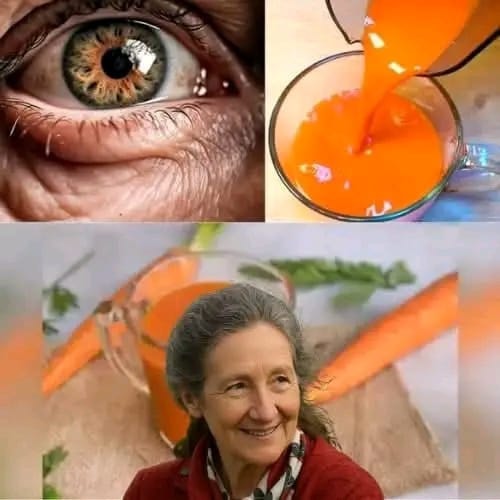ADVERTISEMENT
Drink one glass per day, preferably in the morning.
Always use fresh ingredients for optimal nutrients.
Juice should be consumed immediately for the best effect—avoid storing it for later.
If needed, store tightly sealed in the fridge for up to 6 hours.
Variations:
Replace apple with orange for a citrus twist.
Add a handful of spinach or kale to boost antioxidant content.
Use turmeric root instead of ginger for anti-inflammatory benefits.
Blend instead of juicing for added fiber (though texture will be thicker).
FAQ:
Does carrot juice really help with vision?
Carrot juice is rich in beta-carotene, which converts to vitamin A—a nutrient essential for eye health, especially for low-light vision and surface protection of the eyes.
Can carrot juice reverse vision loss?
No, it’s not a cure or quick fix. But regular intake may support long-term eye health and help slow age-related decline.
Why not just eat whole carrots?
You can—and should! Juicing is simply an efficient way to get a concentrated dose of nutrients quickly, especially in the morning.
Is bottled carrot juice just as good?
Not quite. Bottled versions often contain preservatives or lose nutrients over time. Fresh juice is far more effective.
How long before I notice a difference?
This varies by person, but many experience better energy, digestion, and skin tone within weeks. Eye health is a long-term investment.
ADVERTISEMENT
